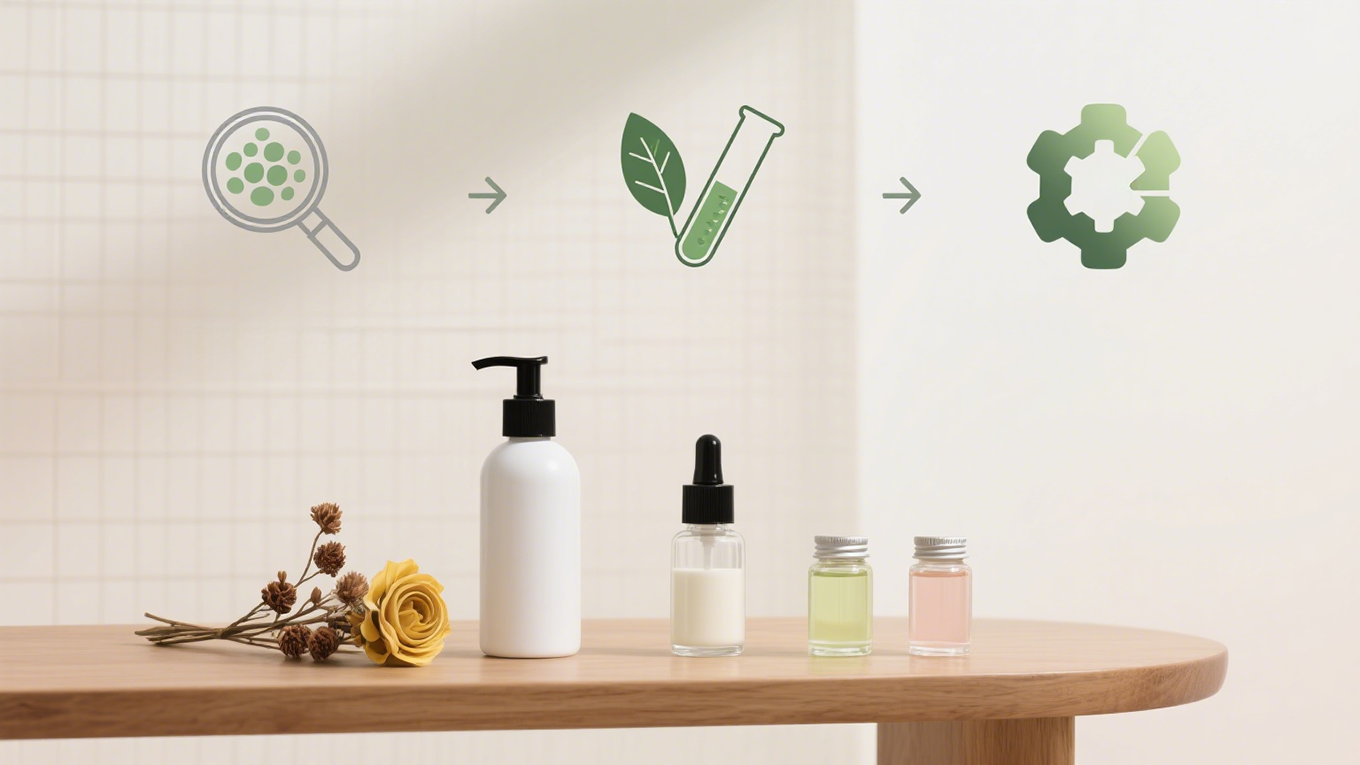In the evolving beauty industry, consumers are increasingly discerning about the products they use on their skin. One of the most significant decisions revolves around choosing between natural and synthetic cosmetics. Understanding the differences, advantages, and considerations of each can empower you to make informed choices that align with your skin's needs and personal values.
1. Ingredient Origins: Nature's Bounty vs. Laboratory Precision
Natural Cosmetics Natural cosmetics are formulated with ingredients derived from nature, such as plants, minerals, and other naturally occurring substances. These products aim to harness the inherent properties of these ingredients to benefit the skin.
- Plant-Based Ingredients: Utilization of herbs, flowers, and fruits known for their skin-enhancing properties.
- Minimal Processing: Ingredients are often minimally processed to retain their natural benefits.
- Eco-Friendly Practices: Emphasis on sustainable sourcing and biodegradable packaging.
- Fewer Synthetic Additives: Limited use of artificial colors, fragrances, and preservatives.
Synthetic Cosmetics Synthetic cosmetics are products formulated using man-made ingredients, often designed to mimic or enhance the properties of natural substances. These formulations are crafted through chemical processes to achieve desired effects.
- Lab-Created Ingredients: Utilization of chemically synthesized compounds to achieve specific results.
- Enhanced Stability: Longer shelf life due to the inclusion of synthetic preservatives.
- Consistent Formulations: Precise control over ingredient concentrations and product performance.
- Wider Availability: Often more accessible and affordable due to mass production.
2. Skin Compatibility and Sensitivity
Natural Cosmetics Natural products are often perceived as gentler on the skin, making them suitable for those with sensitive or reactive skin.
- Gentleness: Natural ingredients are often perceived as gentler on the skin, making them suitable for those with sensitive or reactive skin.
- Nutrient-Rich: Many natural ingredients are rich in vitamins, antioxidants, and other beneficial compounds that nourish and protect the skin.
- Environmentally Friendly: Harvesting natural ingredients sustainably can have less of an impact on the environment compared to the production of synthetic ingredients.
Synthetic Cosmetics While synthetic ingredients are designed for specific purposes, they may not always be suitable for sensitive skin types.
- Potential Irritation: Some synthetic ingredients may cause irritation or clog pores, especially in sensitive individuals.
- Consistency: Synthetic formulations offer more consistent results, which can be beneficial for targeting specific skin concerns.
- Ethical Sourcing: Lab-extracted ingredients in synthetic skincare can allow for more sustainable, cruelty-free options.
3. Performance and Efficacy
Natural Cosmetics Natural cosmetics often contain high levels of antioxidants that help fight damaging free radicals.
- Natural Benefits: Plant-based ingredients are known for their high levels of antioxidants, which help fight the damaging free radicals our skin encounters on a daily basis.
- Glow-Boosting: Ingredients like polyphenols in green tea, beta-carotene in carrots and sweet potatoes, and vitamin C in citrus and rosehips contribute to a healthy, radiant complexion.
- Holistic Approach: Natural ingredients often provide multiple benefits simultaneously, such as hydration, anti-aging, and skin repair.
Synthetic Cosmetics Synthetic compounds provide robust precision and stability in cosmetic formulations, allowing manufacturers to develop strictly controlled concentrations.
- Targeted Treatment: Designed to deliver specific results, such as anti-aging or acne treatment.
- Extended Shelf Life: Reduced risk of product degradation over time.
- Innovative Formulations: Ability to incorporate advanced technologies and ingredients.
4. Environmental Impact and Sustainability
Natural Cosmetics Natural cosmetics are often produced with consideration for ecological sustainability.
- Sustainable Practices: Emphasis on sustainable sourcing and biodegradable packaging.
- Reduced Environmental Footprint: Often produced with consideration for ecological sustainability.
- Support for Ethical Farming: Supports organic farming practices and fair trade.
Synthetic Cosmetics While synthetic cosmetics can be produced efficiently, they may have a higher environmental impact.
- Resource-Intensive Production: The production of synthetic ingredients can be resource-intensive.
- Packaging Concerns: May involve packaging that is not biodegradable.
- Waste Generation: Potential for increased waste generation during production.
5. Cost and Accessibility
Natural Cosmetics Natural cosmetics may have a higher upfront cost due to the quality of ingredients and sustainable practices involved.
- Higher Initial Cost: Due to the quality of ingredients and sustainable practices.
- Long-Term Value: Often lead to long-term savings by reducing the need for multiple products and treatments, thanks to overall skin health improvement.
- Niche Market: May be less accessible due to limited availability.
Synthetic Cosmetics Synthetic cosmetics can provide effective results at a lower cost.
- Affordability: Generally more affordable due to scalable production processes.
- Wider Availability: Often more accessible and affordable due to mass production.
- Effective Performance: Designed to deliver targeted results.
6. Ethical Considerations and Transparency
Natural Cosmetics Natural cosmetics often align better with sustainability values.
- Ethical Sourcing: Ethical sourcing of ingredients and materials is a priority.
- Transparency: Often engage in philanthropic efforts, supporting causes related to environmental conservation, social justice, and community development.
- Cruelty-Free: Many natural brands are committed to cruelty-free practices.
Synthetic Cosmetics Synthetic cosmetics can offer more sustainable, stable, and effective products.
- Sustainable Alternatives: Lab-extracted ingredients can allow for more sustainable, cruelty-free options.
- Consistency: Synthetic formulations offer more consistent results.
- Ethical Practices: Commitment to ethical sourcing and production practices.
In 2025, the distinction between natural and synthetic cosmetics is more pronounced than ever. Natural products offer gentleness, nutrient-rich benefits, and environmental sustainability, while synthetic products provide precision, targeted efficacy, and cost-effectiveness. The choice between natural and synthetic cosmetics depends on individual preferences, skin needs, and ethical considerations.
At ZM Beauty Supply, we are committed to providing our customers with a diverse range of products that cater to various preferences, ensuring that every purchase is a step towards a more beautiful and sustainable future.



